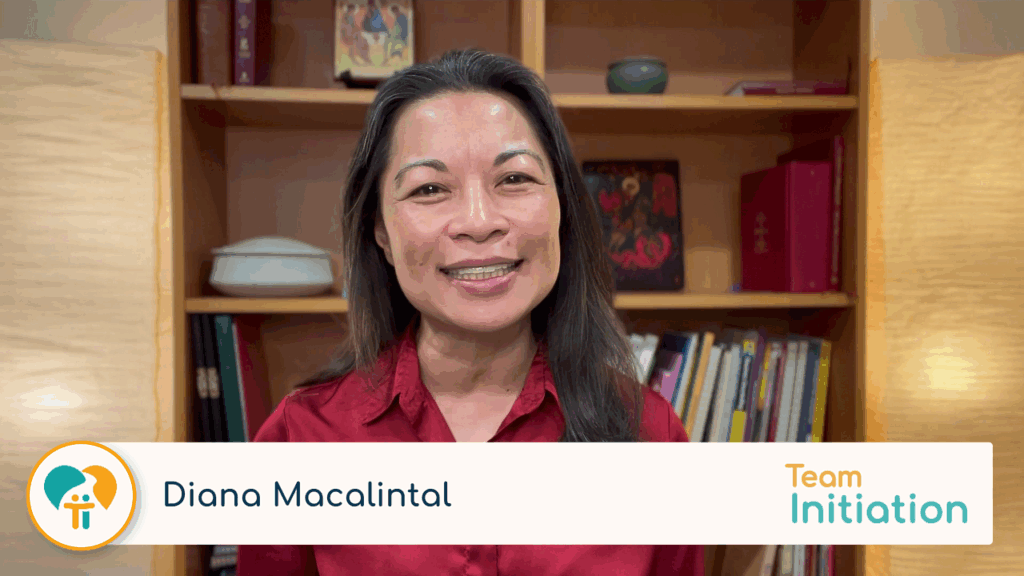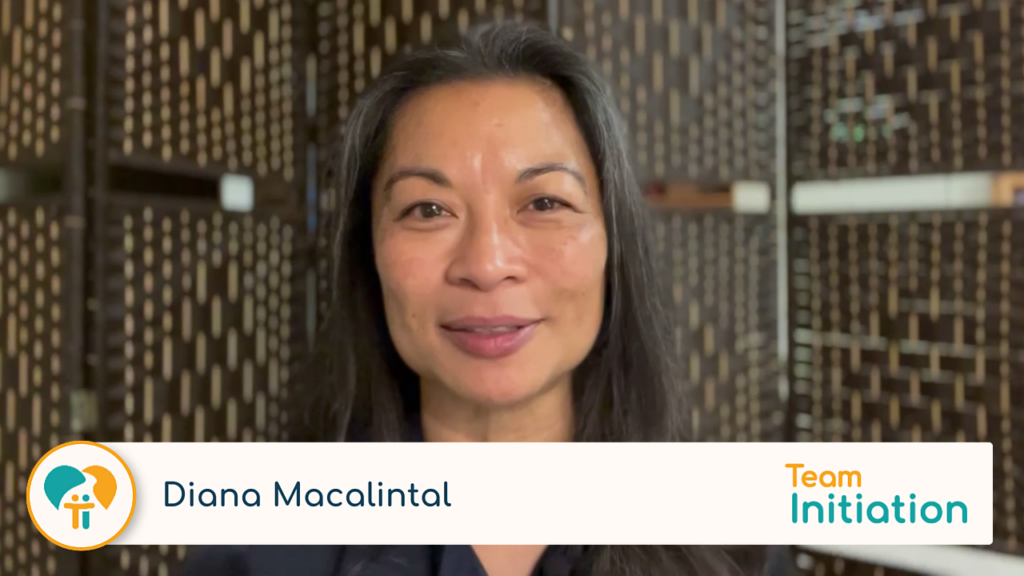 Your catechumens had been participating in the Liturgy of the Word for months, maybe even for years, and they pretty much know the routine. But now that they’re neophytes and are no longer dismissed from the Mass after the homily, some of them might be feeling a little lost in their new experience of the Liturgy of the Eucharist. There are so many new responses and acclamations for them to learn and postures and gestures to make, not to mention “getting it” about the meaning of Eucharist!
Your catechumens had been participating in the Liturgy of the Word for months, maybe even for years, and they pretty much know the routine. But now that they’re neophytes and are no longer dismissed from the Mass after the homily, some of them might be feeling a little lost in their new experience of the Liturgy of the Eucharist. There are so many new responses and acclamations for them to learn and postures and gestures to make, not to mention “getting it” about the meaning of Eucharist!
Some of you might be thinking that you should have done more to prepare them to participate in the Mass before they were baptized. Some of you might even be thinking that if they had not been dismissed so often during their catechumenate, they’d know how to participate in the Eucharist by now. But don’t try to squeeze in more sessions on the Mass for your catechumens just yet. Lack of sessions is not the problem. And for their sake, please don’t dismiss the dismissal of catechumens either! That’s not the solution.
Let’s name the real problem
Remember, neophytes are meant to be “new” to the Mass and to “getting it” about the Eucharist. After all, it’s called initiation, the beginning of a life of learning how to understand and live our faith. That’s why the Period of Postbaptismal Catechesis or Mystagogy during the Easter season, especially during the first year of their life as Christians, is so important. This is the time all the faithful help the neophytes start to “get it.” In doing so, the faithful deepen their own understanding of what they do in the Eucharist.
So I wouldn’t worry that the neophytes don’t understand yet how to participate in the Liturgy of the Eucharist. That wasn’t a requirement for their readiness (see the questions asked of the godparents at the Rite of Election for a general summary of what is required of catechumens for baptism). But understanding the Eucharist and how to participate in the Liturgy of the Eucharist are what they start doing now during this period of mystagogy with the help of the faithful.
On the other hand, if the neophytes are generally clueless about how to participate in the Liturgy of the Word or in basic ritual prayer, then they weren’t ready to be baptized in the first place. The RCIA indicates that not just weeks or even months, but at times, years are necessary in order to help a catechumen become ready to enter the mystery of Christ in the sacraments. Too often, our formal process of preparation is reduced to a few months for people who need much more time…and overly-prolonged for people who are already formed and catechized and living the Christian life (e.g., lifelong practicing Protestants becoming Catholics). We need to be better at discerning the particular needs of each person and giving up our need for doing what we’ve always done with everyone at the same time.
If our neophytes are generally not prepared to participate in the liturgy, the first critique we have to make is upon ourselves.
- Did we as a community prepare and celebrate the Sunday liturgy in such a way that engaged and captured the hearts of the catechumens?
- Did we preach in such a way that the Scriptures interpreted the lives of the people, including the catechumens, every Sunday?
- Did we help them break open the signs and symbols of the liturgy throughout their entire catechumenate so that they could grow in love with Christ encountered in the prayer of the Church?
Don’t dismiss dismissal
Rather than being a hindrance to their participation in the Eucharist, the dismissal of catechumens prior to the Liturgy of the Eucharist is meant to help them grow in their love and appreciation of the entire liturgy and should prepare them to understand the dignity of baptism which gives them the right and duty to offer their sacrifice of praise in the Eucharist. The dismissal, however, is not time for class on a topic, even if that topic comes out of the readings from that Liturgy of the Word. The dismissal, rather, is first a proclamation of the dignity of baptism, and thus it catechizes the faithful who remain about the importance of what they are about to do in the prayers of the faithful and the Liturgy of the Eucharist.
Second, the time after dismissal is meant for the catechumens to share their joy and spiritual experience of Christ whom they encountered not only in the Word but also in the assembly and in the prayers, songs, and ritual actions of the assembly (see RCIA 67A). It is primarily a time for faith sharing meant to deepen their love for Christ and Christ’s Church.
The way neophytes (and “old”-phytes!) learn how to participate in the Liturgy of the Eucharist is by participating in the Eucharist celebrated well and fully. Then, especially during the Easter season, neophytes gather with those who have celebrated it all their lives to share with them what each of them saw, heard, touched, and tasted in the breaking of the bread. That’s how the first disciples “learned the Eucharist.” It’s how we do as well.
Your Turn
What have you shared with your neophytes to help them participate more fully in the mass? How have your neophytes opened your eyes to something new? Share in the comments below.
Photo by Colin Maynard | Unsplash

















I spent one Mystagogy seasion talking to the Neophytes about what it is to live sacramentally. That we as Catholics make the Sacraments part of our experience in our life and that it becomes second nature to us. I suggested going to daily mass at least one other time per week if possibly to receive the abundant grances from our Lord and “get more into the swing of things”
Vince, I was just going to suggest daily Mass for neophytes to learn the way to celebrate Mass as well. Yes the “progressive solemnity” isn’t there as much as a Sunday, but it gives more of an opportunity of when to stand, sit, when to respond and what to respond. The questions will always be there as you and I are always asking ourselves, why do we do the things we do?”
We expect someone truly interested in becoming Catholic to attend Mass as often as possible. Once a formal request for instruction takes place, they would be expected to attend weekly if possible. It is usually the Eucharist which draws them to us. The time required depends on the individual, their history ( do they have Catholics somewhere in the family? ), their age, their level of education, etc.. Everything is geared to the needs of the individual as this call is entirely about responding to a call by Christ to a deeper relationship with him. Depending on the number of people, one on one time is always a part of our mentoring and teaching. One example I use is in a marriage the relationship grows and develops as time moves on, assuming one tries to more fully love the other. So it is in responding to Christ’s call to the Church and His call to greater intimacy with Himself through the Eucharist. We’ve had great results by using this approach. We don’t want scholars of Catholism but rather good people who try to live as Christ taught us.